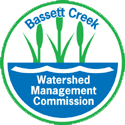News
Which deicer is safest for our pets?
Tue, Feb 16, 2021After repeatedly hearing about the dangers and environmental costs of using excess salt and deicers on streets, sidewalks, parking lots, and driveways, people are looking for safer alternatives. It’s natural to seek an easy, alternative product that does the same thing as salt but that is also safe for pets, water, soil, and vegetation. But here’s the unpleasant truth that exposes this trick question: there is no deicer that is proven to be “safe” for our pets. The silver bullet is excellent “mechanical control,” generally referred to by us common folk as “shoveling.” Plain and Simple.
Then why are products labeled as pet-friendly? The answer to this question has many layers that all point toward the lack of industry labeling and testing standards. Currently, manufacturers are not required to list any or all ingredients. So, even conscientious, label-reading consumers may not be able to determine a definitive answer. In addition, there are few deicer toxicity studies. The Animal Poison Control Center classifies all ice melt products—even those marketed as being “pet friendly”—as chemical irritants that can cause gastrointestinal issues, like vomiting and diarrhea, and topical irritation to the paw pads and skin. Prolonged exposure to the skin for any of these compounds can cause chemical burns.
Still Searching for a Pet-Friendly Option?
If you just need a bit of traction, sand or grits (e.g. cherrystone grit) can provide it and they work at any temperature. However, they do not help melt the ice. And, if overused, sand can choke our storm sewers and waters with sediment and excessive phosphorus, which contributes to algae growth that depletes oxygen levels and kills fish. Poultry grit (sold at many hardware-type stores) and kitty litter are also sometimes used for traction. While these products might be an OK alternative in small areas at residences, there isn't a lot of research on those items for me to promote that as a great option. Also, if not swept up before shoveling again, it will end up in lawns, etc.
Since there is a dizzying number of deicers available with clever marketing, choosing the right product for the right conditions can be a head-scratcher. The chart that accompanies this article might be helpful in identifying the best product for your situation. If this information is confusing to you, consider a certified “Smart Salting” applicator who has completed the Minnesota Pollution Control Agency’s training.
In short, there aren't any deicing agents that pose no threat to pets or the environment—that's why it's all about prevention. While some deicers might be “safer” for pets or non-corrosive to concrete than others, they all carry risks or drawbacks and more research needs to be done. The best solution for your sidewalk, driveway, or parking is to physically remove that snow and slush before it refreezes and becomes ice to minimize the need for chemicals and sand.
Written by Dawn Pape on behalf of the Bassett Creek Watershed Management Commission (BCWMC), a local unit of government comprised of the nine cities that drain to Bassett Creek, focused on protecting water. BCWMC is a member of the West Metro Water Alliance. www.bassettcreekwmo.org.

